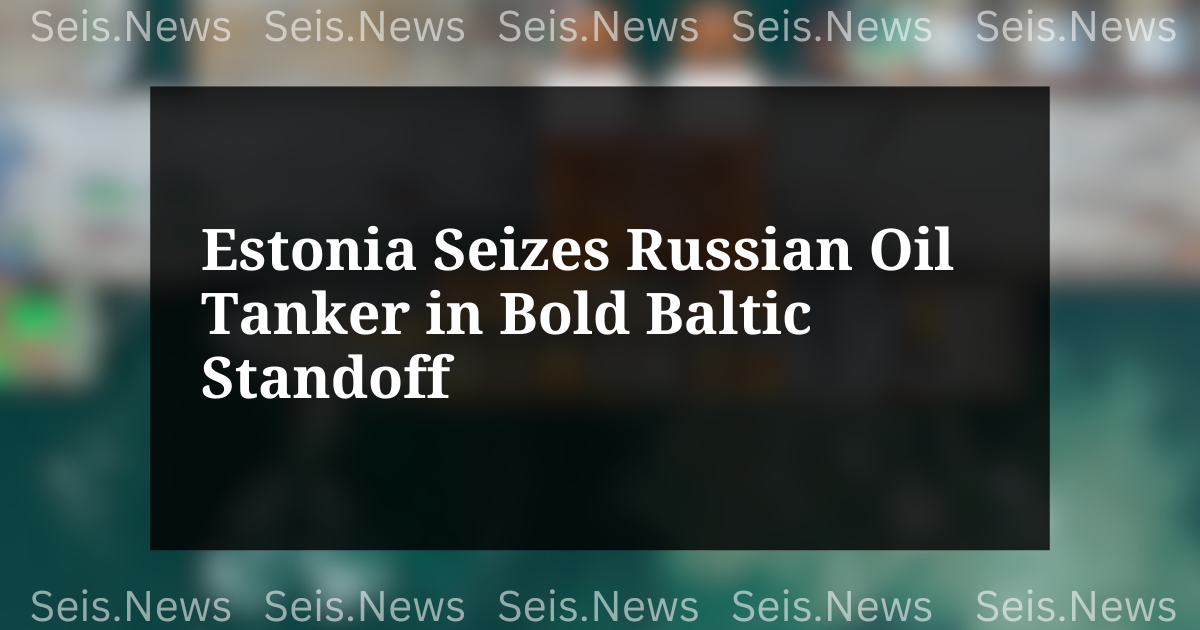Estonia Releases Suspected Russian “Shadow Fleet” Tanker After Flag Dispute
In a high-stakes maritime game of cat and mouse, Estonia has released the oil tanker Kiwala—a vessel on the EU sanctions list—after detaining it for sailing without a valid flag. The incident highlights the growing challenge of enforcing sanctions against Russia’s so-called “shadow fleet” of unregulated tankers.
A Suspicious Detention
On April 11, the Estonian navy intercepted the Russian-bound Kiwala, boarding and detaining the vessel near its territorial waters. Authorities suspected the tanker was part of a clandestine network of ships used to circumvent Western sanctions on Russian oil exports. These shadow fleet vessels often operate without proper insurance or regulatory oversight, posing environmental and legal risks.
“Without a legitimate flag, these ships exist in a legal gray zone—untracked, uninsured, and often unsafe,” said a European maritime security expert who requested anonymity.
The Kiwala initially flew the flag of Djibouti, but when Estonian officials contacted the East African nation’s authorities, they denied the tanker was registered there. This left the vessel effectively stateless—a violation of international maritime law.
A Temporary Reprieve
After nearly two weeks in limbo, Estonia released the tanker on Saturday when Djibouti unexpectedly confirmed it would provisionally accept the Kiwala into its registry—but only until May 7. The abrupt reversal allowed the vessel to slip away, resuming its journey toward Russia’s Ust-Luga port, where it was spotted early Monday.
Djibouti’s maritime authorities have yet to explain their decision, leaving unanswered questions about whether the registration was a bureaucratic oversight or a calculated maneuver to free the tanker.
The Shadow Fleet Loophole
The Kiwala episode underscores the difficulties in policing Russia’s oil trade under sanctions. Shadow fleet tankers frequently change flags, ownership, and routes to evade detection. Many operate with minimal insurance, raising fears of environmental disasters if they founder.
While Estonia’s detention demonstrated EU resolve, the tanker’s release reveals the fragility of enforcement when nations provide last-minute flag registrations. As the Kiwala steams toward Russia, the broader question remains: How do you stop a fleet that exists just outside the rules?





